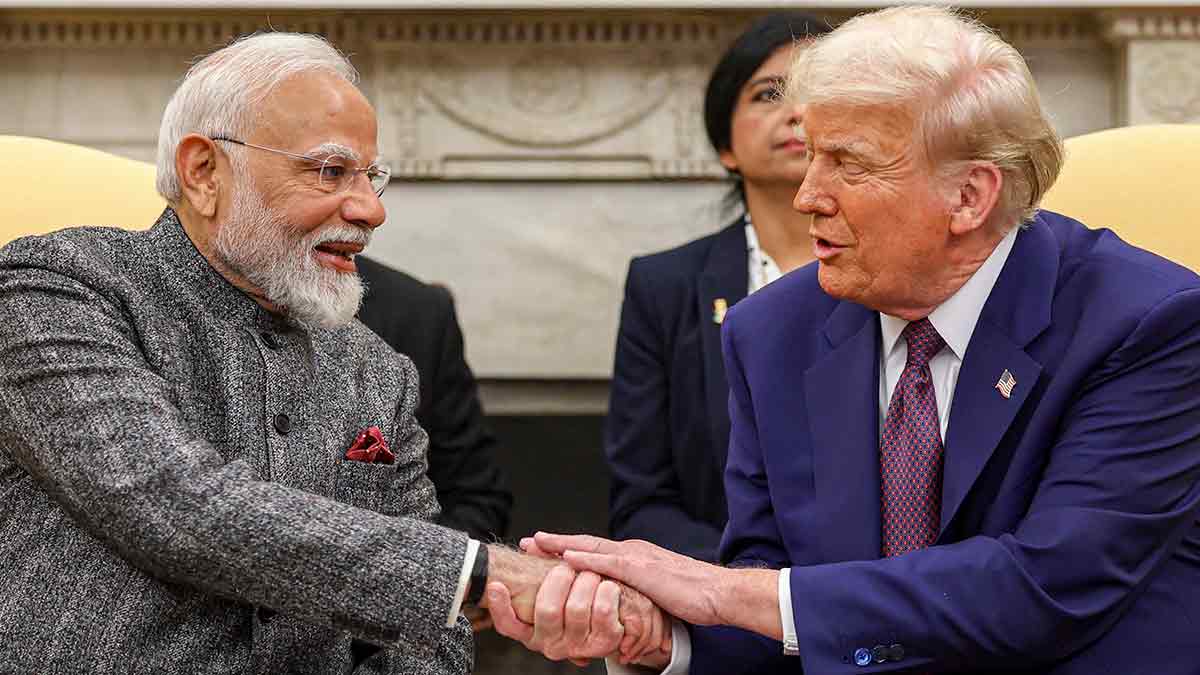'Trump more sympathetic to Modi': Will US intervene as the India-Pakistan conflict escalates?
 Friendly duty: Modi and Trump at the White House in February | PTI
Friendly duty: Modi and Trump at the White House in February | PTI
As the India-Pakistan conflict worsens, all eyes are on whether the US will finally intervene to dissipate the tensions. The hopes are that the US mediation could happen after EAM Jaishankar said he spoke to US Secretary of State Marco Rubio, who also rang up Pakistan Prime Minister Shehbaz Sharif.
The Pakistani side also announced that they are in deliberations with the US. Defence Minister Khawaja Muhammad Asif told Reuters on Thursday that Washington was leading global efforts to reduce tensions between India and Pakistan.
Soon after, US State Department Spokesperson Tammy Bruce too said Rubio stressed the need for immediate de-escalation and an end to the violence. "He expressed US support for direct dialogue between India and Pakistan and encouraged continued efforts to improve communications," Bruce added.
Despite expectations, the US hadn't intervened this time as tension soared, as President Donald Trump did in 2019. Last time, after India and Pakistan sparred, the then-Secretary of State Mike Pompeo played a major role in diffusing the tensions between the neighbours. "I do not think the world properly knows just how close the India-Pakistan rivalry came to spilling over into a nuclear conflagration in February 2019," Pompeo wrote in his memoir 'Never Give an Inch."
Unlike in past India-Pakistan wars, the US held itself back this time, leaving the countries to settle the scores.
According to Tim Willasey-Wilsey of the Royal United Services Institute in London, the US may not be inclined to play a leading role in cooling crises over Kashmir any more, but he favours Narendra Modi. "We now have a president in the White House who says he doesn’t want to be the policeman of the world,” said Willasey-Wilsey, a former British diplomat, told CNN. "And also he’s probably more sympathetic to (Indian) Prime Minister (Narendra) Modi than he is to the Pakistanis."
Many regional experts also feel that the current Trump administration is bent on making changes in its foreign policy and not very insistent on the multinational leadership it once helmed before.
However, the mediation efforts could be challenged by the fact that the US and Pakistan aren't close anymore since the US's exit from Afghanistan. Pakistan is now close to the US's foe, China. "There’s no question that there’s been a sea change in the US’s position in recent years," Milan Vaishnav, director of the South Asia program at the Carnegie Endowment for International Peace, told CNN. "India is one of the most important strategic partners for the United States, whereas Pakistan’s importance … has really declined," he added.
Gulf nations?
There are also speculations that Middle Eastern countries, especially Saudi Arabia, could step in to solve the crisis. Saudi Arabia's Minister of State for Foreign Affairs Adel Al-Aljubeir arrived in India on Thursday morning on an unannounced visit to hold talks with External Affairs Minister S Jaishankar. There are also unconfirmed reports that he could be heading to Pakistan to meet Shehbaz Sharif.
India